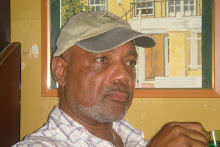Profile: Joseph Ratzinger
German Cardinal Joseph Ratzinger, who has been elected Pope, has played the role of doctrinal watchdog at the Vatican since 1981.
Under the 78-year-old's meek demeanour lies a steely intellect ready to dissect theological works for their dogmatic purity and debate fiercely against dissenters.
His traditionalist judgments have delighted fellow conservatives and outraged liberal Catholics and members of other faiths.
Born in Bavaria in 1927, Ratzinger first gained attention as a liberal theological adviser at the Second Vatican Council (1962-1965). The Marxism and atheism of the 1968 student protests across Europe prompted him to become more conservative to defend the faith against growing secularism.
After stints as a leading theology professor and then archbishop of Munich, Ratzinger was appointed head of the Congregation for the Doctrine of the Faith (CDF), the successor office to the Inquisition, in 1981.
In that office, Ratzinger first turned towards "liberation theology" popular in Latin America, quieting its theologians.
In 1986, he issued a firm Vatican denunciation of homosexuality and gay marriage. He brought pressure in the 1990s against theologians, mostly in Asia, who saw non-Christian religions as part of God's plan for humanity.
A 2004 document sternly denounced "radical feminism" as an ideology that undermined the family and obscured the natural differences between men and women.
His combative side came out in 2000 in a dispute over a CDF document entitled Dominus Iesus. Aimed at restating the primacy of the Roman Catholic Church against the more inclusive views in Asia, it branded other Christian denominations as deficient or not quite real churches.
Anglican, Lutheran and other Protestant churches which had been in ecumenical dialogue with Rome for years were shocked. They were further upset when Ratzinger dismissed protests from Lutherans as "absurd".
He raised eyebrows with unusually sharp criticism of the Church when he took the Pope's place at a Good Friday mass in 2005. "How much filth there is in the Church, even among those who, in the priesthood, should belong entirely to Him. How much pride, how much self-sufficiency," he said.
One of Pope John Paul II's closest advisers, Ratzinger grew in power over the years.
In 2002, he added an influential post when he became dean of the College of Cardinals which elects the next pontiff.
He gave a widely praised homily at Pope John Paul II's funeral.
-Reuters
Under the 78-year-old's meek demeanour lies a steely intellect ready to dissect theological works for their dogmatic purity and debate fiercely against dissenters.
His traditionalist judgments have delighted fellow conservatives and outraged liberal Catholics and members of other faiths.
Born in Bavaria in 1927, Ratzinger first gained attention as a liberal theological adviser at the Second Vatican Council (1962-1965). The Marxism and atheism of the 1968 student protests across Europe prompted him to become more conservative to defend the faith against growing secularism.
After stints as a leading theology professor and then archbishop of Munich, Ratzinger was appointed head of the Congregation for the Doctrine of the Faith (CDF), the successor office to the Inquisition, in 1981.
In that office, Ratzinger first turned towards "liberation theology" popular in Latin America, quieting its theologians.
In 1986, he issued a firm Vatican denunciation of homosexuality and gay marriage. He brought pressure in the 1990s against theologians, mostly in Asia, who saw non-Christian religions as part of God's plan for humanity.
A 2004 document sternly denounced "radical feminism" as an ideology that undermined the family and obscured the natural differences between men and women.
His combative side came out in 2000 in a dispute over a CDF document entitled Dominus Iesus. Aimed at restating the primacy of the Roman Catholic Church against the more inclusive views in Asia, it branded other Christian denominations as deficient or not quite real churches.
Anglican, Lutheran and other Protestant churches which had been in ecumenical dialogue with Rome for years were shocked. They were further upset when Ratzinger dismissed protests from Lutherans as "absurd".
He raised eyebrows with unusually sharp criticism of the Church when he took the Pope's place at a Good Friday mass in 2005. "How much filth there is in the Church, even among those who, in the priesthood, should belong entirely to Him. How much pride, how much self-sufficiency," he said.
One of Pope John Paul II's closest advisers, Ratzinger grew in power over the years.
In 2002, he added an influential post when he became dean of the College of Cardinals which elects the next pontiff.
He gave a widely praised homily at Pope John Paul II's funeral.
-Reuters



0 comments:
Post a Comment
<< Home